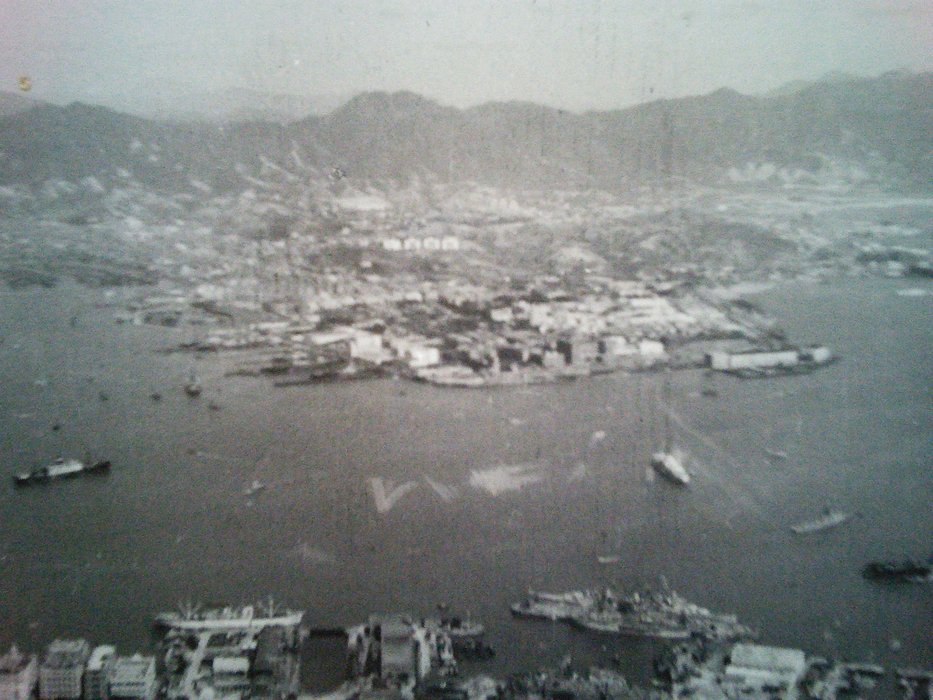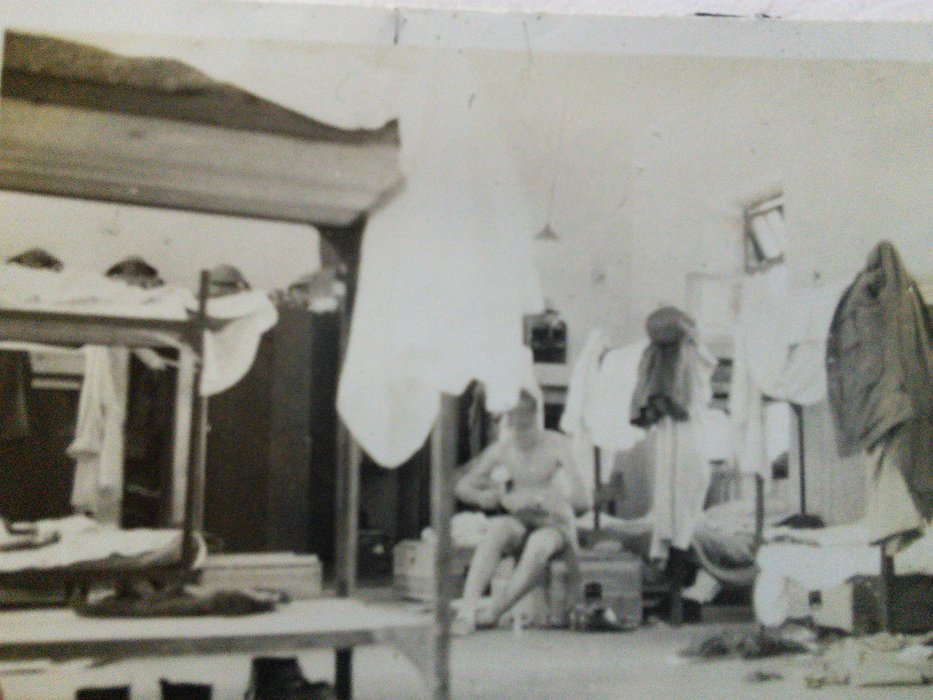
These articles are about the Army when I did my National Service. They were written with the aid of a five-year diary and later between working hours during early morning shifts.
A SOLDIER'S TALE (12)
On one duty evening I was privileged to chat to the duty officer Major "Mad Mike Calvert", who had led a column of "Chindits" behind the Japanese lines in Burma (now Mayanmar) during the war. When we learned that the famous man had been posted to us as G3(Air) - to liaise with the RAF - we had visions of a tough, lean, hardbitten hero-figure, and were hardly prepared for the somewhat ravaged personality running to fat, who eventually appeared.
But the evening chat with him helped me to discover the inner man. At the time he was writing his story of the Burma war called "Prisoners of Hope" which is still on my bookshelf. I count myself fortunate to have known and tried to work with, such a man, for he was a terror to work for. Predictably, for a man of action, he resented the restrictions of a staff officer's job. He was never in the office, and was generally found to be directing a land-air exercise deep in the New Territories, or throwing thunderflashes at some unfortunate soldier on exercise. But we forgave him for he always gave the duty clerk a beer.
A second association with history and heroes occurred when the frigate HMS Amethyst arrived in Hong Kong after her gruelling experience in the Yangtze River. We gathered on the verandah of the office which overlooked the harbour, saw her limp slowly to the dockyard to the accompaniment off ships' sirens, and wondered how this battered and scarred little ship which had suffered serious casualties, could have survived the Communist's heavy guns which ambushed her on a legitimate mission to stand by the threatened British Embassy in Nanking.
Tiny Amethyst seem to bring home to us the Communist threat, but came to me as something of an anti-climax later in the day to be driven in a Jeep to collect "urgently needed" duplicating paper and some "urgent" messages on the way.
We were a little concerned about rumours that Hong Kong could never be defended. "After all, look what happened in the war." I wondered about that when I found a copy if the "The Defence of Hong Kong 1941" when rummaging in one of the office cupboards. It was the dry official report of the Japanese invasion of the colony - which fell on Christmas Day - by the then C-in-C, General Maltby.
The story of the 18-day battle against overwhelming odds with no air cover, an ancient gunboat, and three or four obsolete motor torpedo boats was hardly a test of whether the colony could be defended. At one point fanatical Japanese troops even swam the harbour in their eagerness to reach the island. Later the bare bones were clothed for me by Tim Carew's book "The Fall of Hong Kong" in which the incredible bravery of servicemen and civilians, were only matched by the grossly inadequate preparation for war, and the frenzied onslaught by the Japanese who committed the most terrible atrocities.

In a lighter vein, another book buried in the cupboard was "Laughs from SEAC" (South East Asia Command) was published just after the war. It was full of bitterly humorous cartoons about "soya links" (unpleasant sausages), mules (used for jungle transport), and for instance, the soldier who returned home and camped in the garden because he he had spent to long in the jungle and found conditions at home too soft!
Laughter is a great antidote to pain, misery, depression and irritability, and when our Corporal Laister was charged, together with the corporal in charge of the billet for allowing it to degenerate into a filthy condition, I for one, was delighted. Unfortunately, within days, the greater zeal of the room corporal resulted in his putting me on a charge - for not cleaning a mirror.
"Left, right, left, right, right turn, halt." The Commanding Officer looked at me quizzically. In vain were my pleas. The weight of evidence was against me and I received three days "jankers" - confined to barracks - which involved me reporting to the guard room at 6am daily, to be subjected to abuse from the regimental police while scrubbing the floor, or bulling a Sam Browne (officer's leather belt and shoulder strap), and then reporting back after work to spend a further enlightening hour or two.

The second evening of jankers I was in the guard room exchanging epithets with an RP (Regimental Policeman) when a US Navy seaman rushed through the barrack gates followed by a US shore patrol armed with lengthy truncheons. They caught him inside the gates and started belabouring him with marvellous indiscrimination. He struggled into the guard room for shelter as the Royal Marines on gate duty persuaded the shore patrol to lay off. The incident fizzled out and the patrol marched off with their victim. From then on I began to fully appreciate British Army justice which prohibited violence of this nature. Even the RPs seemed virtuous when compared to the savages the US Navy sent ashore that day.
One day, Johnny came back from the cookhouse slopping a mug of weak "gnat's piss" tea which he loved, and announced there was bacon and eggs for breakfast and there was as much butter, marmalade, and bread as one would wish to eat. There was a concerted rush and fifteen minutes later a dozen soldiers sat back and lit their cigarettes with blissful sighs. "What brought that on", wondered "Digger" Melbourne.
What actually "brought that on" was that the cook-sergeant - whom we had suspected of being a crook-sergeant - had been arrested for selling food to the local population. Then, only days later, his corporal, presumably unable to cope with unaccustomed responsibility, deserted. A fortnight later he was traced to Canton, in China, and extradited. His fate, and that of a fellow-deserter were luckier than they knew. Had they slipped off to China a month later they might never have come back, for on 16 October 1949 Communist troops arrived at the Hong Kong border to the accompaniment of a high state of readiness among the three British services - and nothing happened! Except that the border was closed. Trains from Kowloon to the interior were terminated there, and the cork of Hong Kong's bottle was firmly rammed into it.
From then on, daily reports for Communists' border activities were passed to G branch at HQ. It was all rather laconic. "Guard at Sham Chun (the border village) strolled across the lines, and lit a cigarette. He then shifted his weight from from foot to foot, appearing agitated. At 1356 he disappeared behind a bush for some 45 seconds. He then appeared, apparently relieved. He was later (1435) joined by a figure, apparently of officer type..."
To be continued...